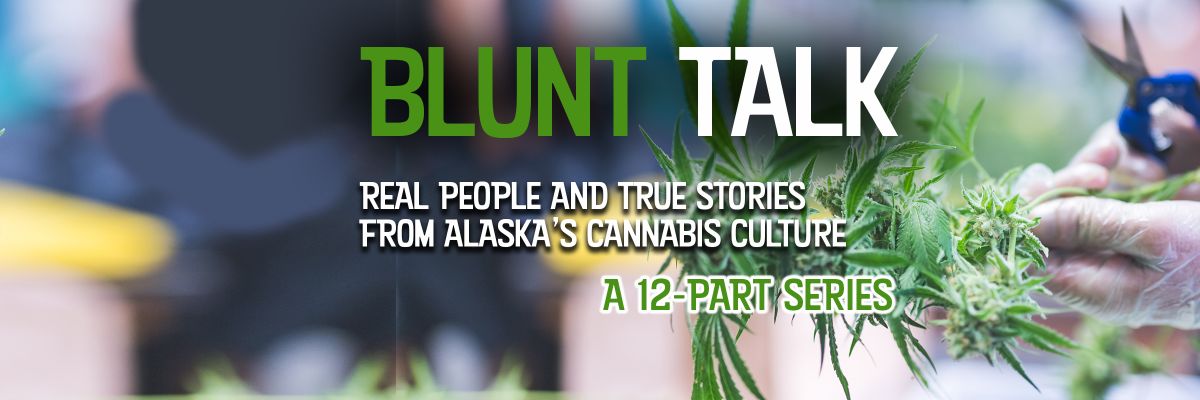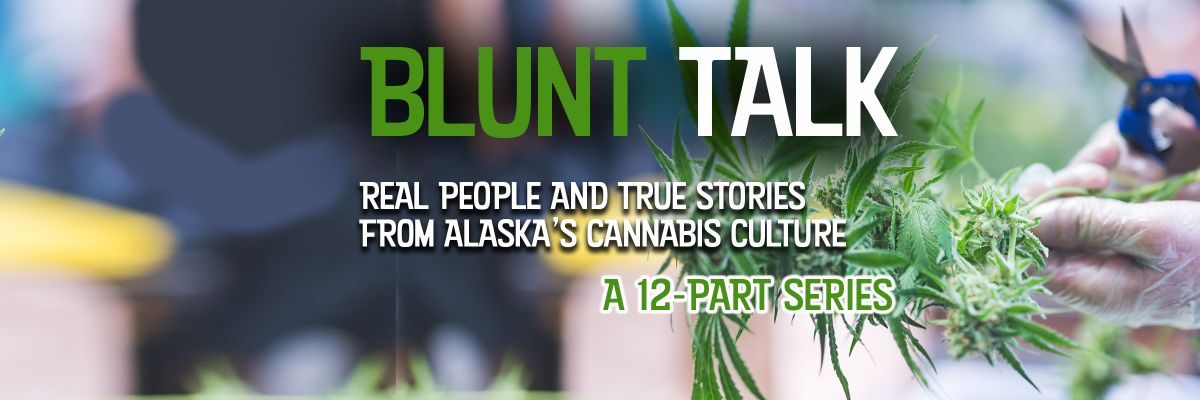
SPONSORED: Sustainability is a concept that’s been embraced by businesses in all industries in recent years. A combination of good business planning, environmental considerations and concern for consumer health, “sustainability” implies responsibility and eco-consciousness, an effort to mitigating any negative impact on the planet and the bottom line. And it’s not just a trend — shopping with companies that use sustainable practices is increasingly a priority for consumers.
It’s no different in the cannabis biz. Between strict packaging regulations and the significant energy required to power an indoor grow operation, the cannabis industry has the potential to be resource consumptive — both environmentally and financially. Smart cannabis entrepreneurs nationwide are working to make their businesses more economically and ecologically efficient.
Here in Alaska’s nascent cannabis industry, sustainability is front and center for some business owners. From cultivation techniques that eliminate waste to packaging efforts intending to minimize landfill, cannabis entrepreneurs across Alaska are looking for ways to help save their customers money and maybe even keep the planet from going under.
Greening up indoor growing
Between lighting, heat, ventilation and water, growing cannabis indoors has the potential to be an expensive proposition with a significant resource footprint. In Alaska, where the industry couldn’t function without local, indoor cultivation, growers are motivated to find ways to make their businesses greener and more cost-effective.
“We reuse all of our pots,” said Will Schneider, owner of Catalyst Cannabis Co. “We hand-water everything. We use only organic inputs so we’re not dumping harmful chemicals or nutrients down the drain or giving them to our plants.”
Catalyst also puts a heavy focus on reducing resource consumption and recycling, both at its grow operation and its retail store, according to Schneider. The store is furnished with furniture and fixtures made in Anchorage from locally sourced Mat-Su spruce.
“All cardboard, glass, cans, plastic containers, plastic bags — basically anything the Anchorage recycling center accepts, we recycle it at both facilities,” he said.
Schneider said he hopes his company can have an impact as a trendsetter both here in Alaska and farther afield.
“We (are) focused on sustainability and using organic ingredients,” he said. “Obviously (we practice) indoor agriculture, so it’s not quite as sustainable as turning over fields every year.”
At Kasilof cultivator Greatland Ganja, co-founder Leif Abel says, cultivators pay special attention to fertilizer acquisitions, water resources, and growing mediums.
When growing hydroponically, Abel said, they focus on practices that minimize the impact on the environment (and the bottom line). To minimize “drain to waste,” for example, Abel says the company makes sure that nutrient tanks are recirculating fertilizer.
“And then everything has to be filtered properly,” he explained. “You want to reuse your nutrient solution. You don’t just want to drain it away. That’s super important. You can be super wasteful depending on the (system) you choose and how your design was set up, or you can just see a tenfold savings in fertilizer and other things.”
Reuse, recycle, replant
At Talkeetna Herb Company, owner and cultivator Krystal Dietrich says she recycles and reuses to keep as much waste as possible out of the dump.
“Everything natural is composted and reused for a good purpose,” Dietrich said. “One hundred percent of my waste materials are composted. All stems, sticks, leaves, used dirt, and even fertilizers are all mixed into a pile with horse manure from the six horses that I own.”
The resulting compost is used in raised-bed gardens of different kinds around her property in Talkeetna. During the summer months, any used fertilizer goes straight into the gardens that feed both her family and her horses.
“You could say it is a complete circle for the horses,” she said, laughing. “From their rear end back to their front end.”
Everything she does, says Dietrich, is focused on reducing her waste profile. “I go to a state dump less than twice per year, so that should tell you how much trash we produce,” she said.
Still, she added, there’s room for improvement. She’s already looking into changing to more energy efficient lighting so she can consume less power.
The price of sustainability
Achieving sustainability in both growing practices and business development can be a bit of a balancing act. Just ask Abel.
Its first year in business, Greatland used organic practices to grow all of its plants. It wasn’t long before environmental sustainability started to become an obstacle to the sustainability of the business.
“In the beginning it cost more to grow organic, and you have to pass that on to the consumer,” Abel said. “It’s a higher-dollar, more valuable product than cannabis grown with conventional fertilizer.”
There is a consumer base that is willing to spend more on organically grown cannabis — but not enough for Abel to justify an all-organic grow, at least not while the business is still young.
“Unfortunately, we’ve had to back off to about 20 percent organic because the market won’t bear any more than that,” Abel said.
It’s also impossible to get an official organic certification, no matter how the plants are grown. The National Organic Program is run by the U.S. Department of Agriculture — which, as a federal agency, does not recognize cannabis as a crop — and Alaska’s state cannabis laws specifically prohibit products from being labeled “organic.”
Certification or no, both Catalyst and Greatland say they strive for the safest, cleanest growing practices possible. At Catalyst, for example, all of the nutrients and fertilizers used are endorsed by either the Organics Materials Review or the California Department of Food and Agriculture, the two primary agencies that certify organic products for use in agriculture.
Recycling is great; reusing is better
When it comes to the consumer end of the process, shopping in bulk is an easy way to reduce waste. But Alaska’s strict cannabis regulations mean that option is off the table for dispensaries. Small containers and individual packages are the law of the land.
To limit its consumption of single-use plastics, Catalyst Cannabis Co. has a reusable jar program that will sound familiar to anyone who buys their beer by the growler.
“People purchase a glass jar on their first time into the store, and then on all subsequent visits, they receive a discount when they bring that jar back, as long as it’s clean,” Schneider explained.
Schneider says all packaging in Catalyst’s retail store is reusable, recyclable, or compostable, down to the soy-based ink on the cardboard boxes. He estimates the company has kept 70,000 plastic containers out of landfills since it opened in February 2018.
“We strive to have no Catalyst products that we produce, whether it be our flower or our pre-rolls, go in packaging that’s not sustainable,” Schneider said. “When you get to the recycling, that’s a great effort. But really, if you can reuse or reduce that amount of single-use plastic and other things that don’t biodegrade, that’s really where you’re starting to stack up points for helping the environment.”
While it’s not always easy to strike the perfect balance of good for the planet and good for the bottom line, there’s at least one benefit that customers and businesses both get to enjoy.
“The feel-good aspect of it is definitely an amazing byproduct,” Schneider said.
At Catalyst Cannabis Co., we have a vision of a world where cannabis is a catalyst for societal change, creating a more conscious, peaceful, and sustainable planet.
Blunt Talk is a series of original articles sponsored by Alaska cannabis businesses and organizations to highlight the real people, families, businesses and groups impacted by the legalization of cannabis in Alaska.
This story was produced by the creative services department of the Anchorage Daily News in collaboration with the series sponsors. The ADN newsroom was not involved in its production.

